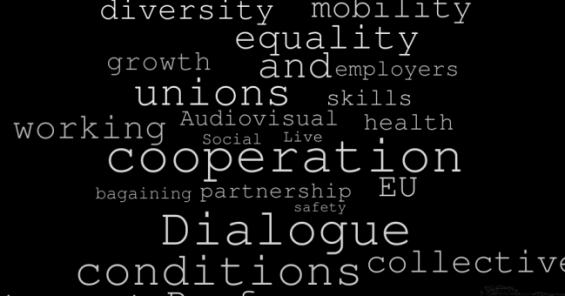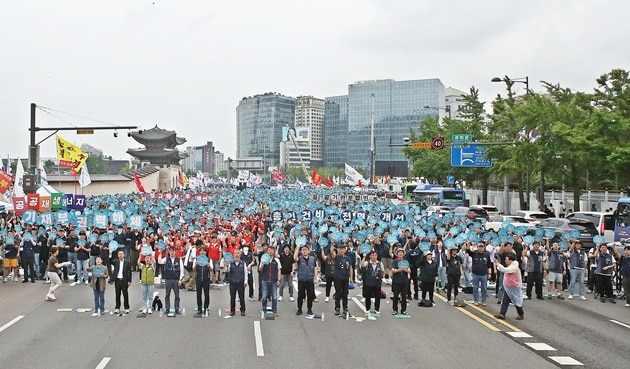EURO-MEI members gathered in Brussels on 10th and 11th of October for the annual plenary sessions of the EU social dialogue committees in the audiovisual and the live performance sectors. The meetings were attended, as usual, by a mix of delegates from the international trade union federations (UNI MEI, FIA, FIM, EFJ) and the employers’ organizations in the live performance sector (Pearle) and the audiovisual sector (ACT, AER, EBU, CEPI, FIAPF). Both meetings allowed employers and trade unions to exchange on the state of play and advancement of the joint projects carried out in each committee. The meetings also presented good practices on a wide range of issues of common concerns to management and labour from both sectors, ranging from gender equality to mobility, skills‘ development, health and safety and digital transformation.
The meeting of the EU live performance committee on the 10th October provided the opportunity to exchange with the ILO on the recently adopted ILO Convention and recommendation on violence and harassment in the world of work. The meeting also celebrated twenty years of European sectoral social dialogue in the live performance sector with keynote speeches from Joost Korte the Director General of the European Commission’s DG Employment and Social Affairs and Tamas Szucs, Director for Culture and Creativity from the European Commission’s DG Culture and Education. Both DGs underlined the importance of the EU live performance sector and supported a reinforced dialogue between social partners and EU institutions. The celebration was concluded by social partners signing a joint declaration on the role, importance and added value of social dialogue in the live performance sector. Finally, management and labour also adopted a new two-year work programme of the committee with a strong focus on gender equality, health and safety at work, the promotion of social dialogue, and skills’ development.
The plenary meeting of the EU audiovisual social dialogue on the 11th November focused on a variety of issues such as digital transformation, skills’ development and health and safety at work. The committee notably took stock of the progress in implementing the joint project on gender equality in the audiovisual sector, which will see the publication of a much-awaited report on good practices on gender equality in the audiovisual sector in Europe at the end of this year. The committee also exchanged on good practices’ examples on promoting gender equality at the Spanish public broadcaster RTVE and on the work on gender equality carried out by the network of directors of European film funding agencies (EFADs). The committee members were also updated about the progress of the joint project of UNI MEI, FIA, CEPI and FIAPF establishing an OiRA risk assessment tool for film and TV production.


